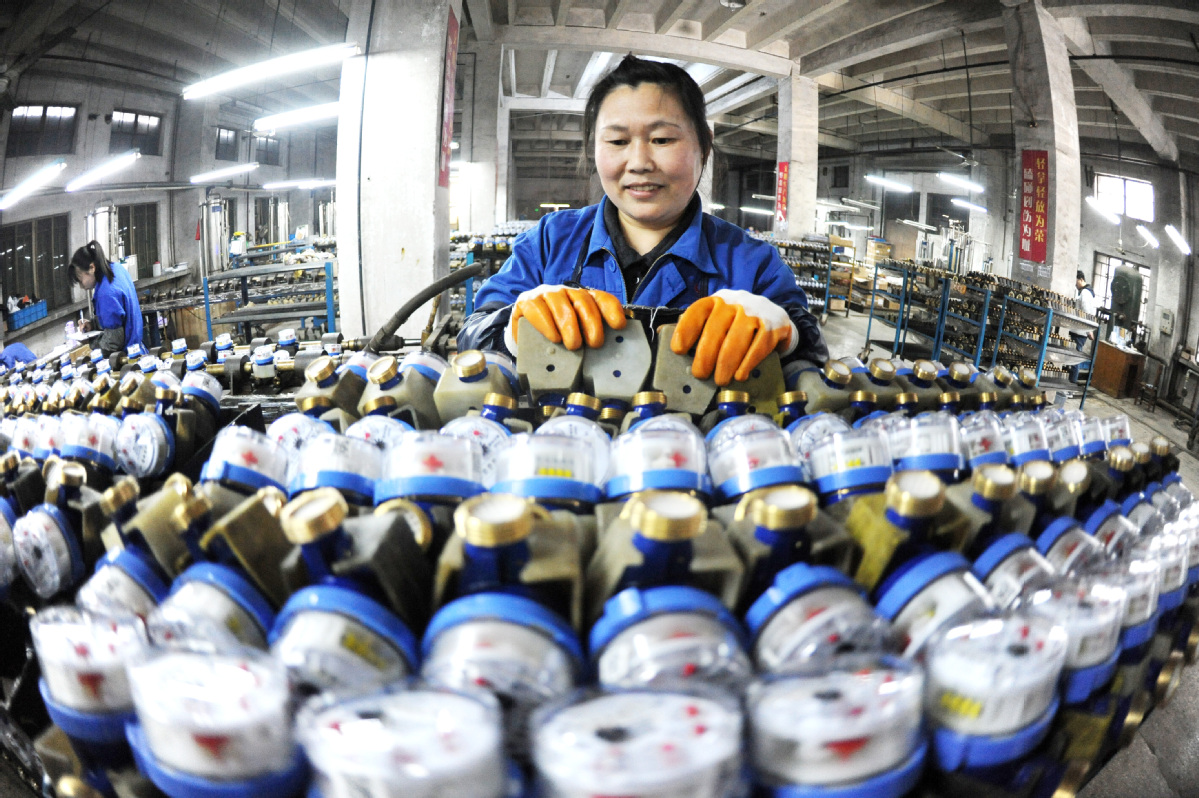Fresh measures ensure timely payments to SMEs
By FAN FEIFEI | CHINA DAILY | Updated: 2020-07-28 09:27

A new regulation on ensuring timely payments to small and medium-sized enterprises, which will go into effect on Sept 1, will better safeguard legal rights and interests of SMEs and private enterprises that are now having a hard time due to the COVID-19 pandemic and create a fairer business environment, said industry insiders.
The State Council on July 14 released the regulation on ensuring timely payments to SMEs, according to a decree of the State Council signed by Premier Li Keqiang.
Generating about 70 percent of GDP and 80 percent of jobs, SMEs have emerged as important pillars that support both the economy and social stability and ensuring payments to them has become an urgent issue, they said.
"SMEs have been greatly affected by the COVID-19 outbreak. With the contagion increasingly coming under control, the resumption of work and production as well as a series of policy supports from government, the operating conditions of enterprises have improved month by month," said Zhang Jingqiang, executive president of the China Association of SMEs.
However, Zhang said the SMEs are relatively more susceptible to risks caused by the epidemic and still confronted with severe challenges in complex circumstances.
According to him, the financial strain remains the top challenge and the biggest constraint for the development of small ventures and microbusinesses, although the central government has made tremendous efforts to support them.
He said the deferred payment of goods, projects and services will seriously affect the cash flow of SMEs and even lead them toward bankruptcy. The regulation will further improve the legal system that is conducive to the healthy development of SMEs, he added.
Noting SMEs play a crucial role in expanding employment and improving people's livelihood, Vice-Minister of Industry and Information Technology Wang Jiangping said the regulation will ensure government departments, public institutions and large enterprises pay SMEs on time and this will invigorate the liquidity of SMEs.
It will also safeguard the legitimate rights and interests of SMEs, reduce their operational costs and optimize the business environment, Wang said.
A mechanism will be established for the disclosure of information regarding overdue payments to SMEs within the prescribed time limit. Also, the system of complaint handling, punishment for acts of bad faith, as well as supervision and evaluation will be set up to protect the legitimate rights of SMEs.
The regulation standardizes contract signing between the relevant signatories and SMEs, requiring them to pay for goods, projects and services from SMEs on time. It also prohibits them from extending the payment period.
The Ministry of Industry and Information Technology said the country has resolved more than 890 billion yuan ($127 billion) in arrears of government departments and State-owned enterprises owed to private firms and SMEs last year. A total of 75 percent of the total had been cleared by the end of 2019, beating the goal of clearing more than half for the year.
Long Weiqiu, a professor at the Law School of Beihang University, said as a major impetus for economic and social development, SMEs make contributions to increasing employment, and promoting entrepreneurship and innovation.
"It is very imperative to formulate the new regulation, which is of great significance in ensuring the survival of SMEs, whose capital chain is more fragile due to the pandemic-related fallout, and avoiding the serious consequences of arrears to SMEs, such as weakening the vitality of enterprises and affecting the stability of society."
Long added government departments, public institutions and State-owned enterprises are urged to ensure timely repayment to SMEs based on the new regulation, which will help stabilize SMEs' daily operations and create a fairer business environment.
Inner Mongolia M-grass Ecology and Environment (Group) Co Ltd, an SME engaged in ecological environment engineering, said the regulation will let the company receive the payments on time, improve the structure of assets and liabilities, stabilize capital flow and help it realize sustainable and steady development.
The company's fiscal results showed its accounts receivable and long-term receivables reached 10.8 billion yuan, accounting for 66.9 percent of its total assets.
Since the COVID-19 outbreak, China's local governments are introducing a string of supportive measures to help SMEs cope with the impact of the novel coronavirus outbreak. They include offering fast-track loans with lower interest rates, lower financing guarantee fees and delaying social security contributions to ease the pressure on SMEs.
In addition, more efforts will be made to offer financial support to SMEs to sustain employment and adopt cutting-edge technologies to advance digital transformation, the authority said.
























